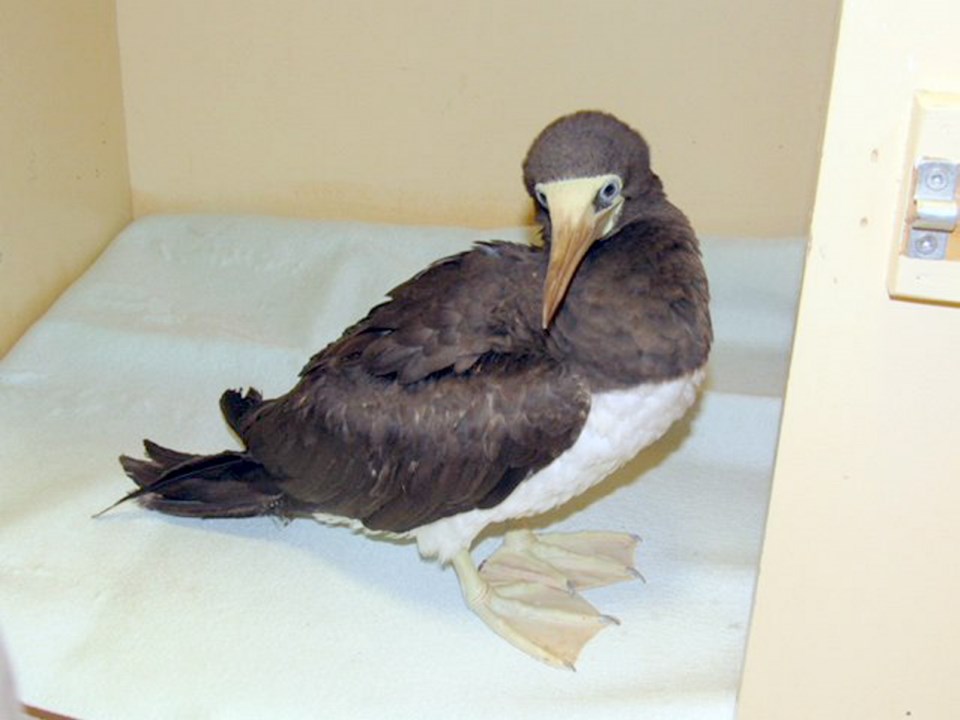A rarely seen brown booby seabird that made headlines when it was rescued last week died Saturday night.
The emaciated bird was nourished by a feeding tube and given antibiotics, antiparasitics and pain killers but wasn’t strong enough to recover, said Marguerite Sans, the senior wildlife rehabilitator at SPCA's Wild Animal Rehabilitation Centre in Metchosin.
Sans said the bird’s health declined dramatically over the weekend as a result of her severe state of emaciation and weakness.
“Even our dedicated expertise was unable to reverse her desperate condition,” said Sans.
Wild ARC staff thanked the bird’s finder Sunday and all the public concern “for this unique patient.”
“Our solace is that she is no longer suffering,” said Sans. “It’s hard every time we have one of these difficult cases. We put all our effort into all the patients we treat and hope for the best.”
June Pigeon, who works at Ogden Point, noticed a "weird looking bird" shaking and shivering on the pier last Monday. The bird didn’t move when she approached.
The weather was bad, so Pigeon took a couple of pictures and called the B.C. SPCA, where the bird was later delivered.
Meanwhile, Pigeon posted the bird’s picture and soon got a “tonne” of replies.
Victoria's avid birders quickly identified the stranded traveller as a brown booby, a strong-flying, long-winged seabird more commonly found in tropical seas.
Ann Nightingale of the Rocky Point Bird Observatory said it was rare to see the birds this far north. The first reported sighting was in 2009, she said.
Nightingale had only seen one once before, in San Diego.
The booby spent the night at the Central Victoria Veterinary Hospital and was transferred the next morning to the SPCA’s Wild Animal Rehabilitation Centre in Metchosin.
It was “borderline emaciated,” said Sans, and had inflamed feet and a small puncture wound on its chest.
“Considering the condition she came in in, we’re not very surprised this happened,” said Sans.
Based on the bird’s weight and blood test results, the staff at Wild ARC were guarded through the week.
Sans had praised Pigeon for doing “everything right” by rescuing the bird. Nightingale said it’s unlikely the bird would have survived a day or two longer in the wild.
Wild ARC reports that in the past year it helped thousands of injured and orphaned wild animals, including 2,207 birds, 907 mammals, 129 reptiles and three amphibians.



